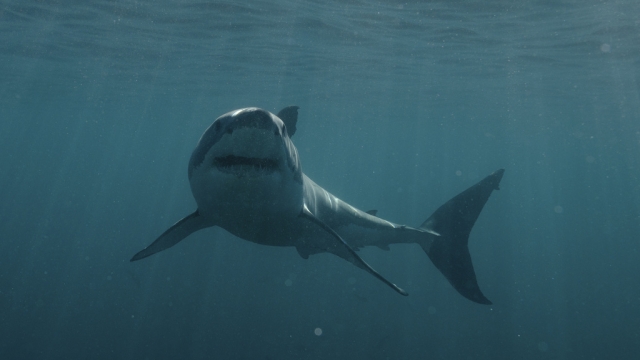A prehistoric predator is making a splash in the headlines.
"Usually around July 4th, the media will take off on sharks," said Greg Skomal, a fisheries biologist at the Massachusetts Division of Marine Fisheries.
Documented shark encounters are being reported all along Americas beaches, from sightings in Hawaii to bite marks in New York's Long Island. The coverage has come with concern leading many to wonder: What's going on with the all sharks?And more importantly, should we be worried about getting in the water?
"What we're seeing this year is kind of similar to the last year, I mean, in terms of shark sightings, shark interactions," Skomal said.
Skomal is the author of "Chasing Shadows: My Life Tracking the Great White Shark." He says the shark activity documented so far this year, while scary for those involved, is pretty on par with what scientists would expect.
"If you throw the media frenzy on top of that, and you're going to have a summer that looks like the summer of the shark, but this is really what it looked like last summer as well," Skomal said.
The International Shark Attack File, or ISAF, is a compilation of all known shark attacks managed by the Florida Museum of Natural History and the American Elasmobranch Society.
In 2022, the ISAF investigated 108 alleged shark-human interactions worldwide. Of those, 57 were confirmed to be "unprovoked," with five fatalities. That's lower than the 70-per-year average for the five years prior.
The ISAF notes that the U.S. once again recorded the most unprovoked shark bites last year — 41 of them to be precise — with Florida being the state to document the most with 16.
Overall, shark bites in 2022 tied with 2020 for a 10-year low. But as of July 7, there have reportedly been 37 unprovoked incidents so far this year.
While there is no current data to suggest shark attacks are on the rise, Skomal says it's worth noting that there are evolving factors at play when it comes to shark populations.
SEE MORE: Tech becoming vital in ensuring safety amidst rising shark encounters
"We also have been working diligently in the U.S. to restore shark populations on both coasts, both coastlines, with regulations and mandates behind those regulations that call for sustainability," Skomal said.
Skomal added that changes to the environment like climate change could be a factor in where and when encounters occur.
"Some of what we're seeing off of Long Island could be an expansion of their range as waters warm here in New England in the summertime, so some of the species — like perhaps blacktip sharks, spinner sharks, the bull sharks — are now being encountered more routinely off Long Island," Skomal said. "They could, of course, be implicated in some of these bites, which, of course, has public safety repercussions."
Experts say there has also been a shift in just how aware we are of the sharks around us.
"We're doing a better job of seeing them," said Larry Cahoon, a biological oceanographer at the University of North Carolina, Wilmington said. "They are out there. But now with drone technology and all the video capacity that we have, we see a lot more sharks. They're not attacking us any more readily than they ever have before, but we're much more aware of them because the imagery is compelling, let's put it that way."
Cahoon says overall, sharks really aren't interested in humans.
"The vast majority of situations where a shark knows that you are in the water nearby, that shark wants nothing to do with you," Skomal said.
And as for being safe in the water, he says to make sure you know the risk before swimming.
"Talk to the local public safety officials, get a sense of what the risk is and then make a decision. Then go from there," Skomal said. "But, you know, don't just go to the beach and think everywhere you swim is going to be wonderful and perfect, and take some responsibility for what you do for yourself."
Trending stories at Scrippsnews.com




